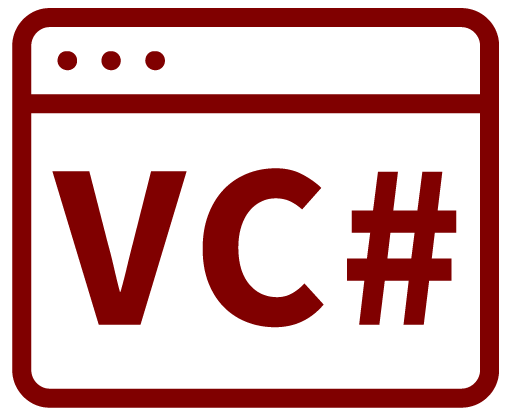The structure below shows the various basic types of C# and the types they map to in the .Net framework.
| C# Short Name | .Net Class | Declaration | Description |
| bool | Boolean | bool isValid = true; |
8 bit true or false |
| sbyte | SByte | sbyte b = -1 | signed 8 bit integer |
| byte | Byte | byte b = 1; | 8 bit unsigned integer |
| char | Char | char = 'a' | 16 bit single Unicode character |
| short | Int16 | short s = 123; | 16bit signed integer |
| ushort | UInt16 | ushort s = 15; | 16bit unsigned integer |
| int | Int32 | int i = -1000000; | 32bit signed integer |
| uint | UInt32 | uint i = 50000; | 32bit unsigned integer |
| long | Int64 | long = 2000; | 64 bit signed integer |
| ulong | UInt64 | ulong = 2000; | 64 bit unsigned integer |
| float | Single | float f = 1.04f; | 4 byte single precision floating point |
| double | Double | double d = 1.0E-13 | 8 byte double precision floating point |
| decimal | Decimal | 16 byte precise fractional or integral type that can represent decimal numbers with 29 significant digits | |
| string | String | string s = "abcd"; | A sequence of unicode characters |
Binary Values
You can't specify a binary value in C# – specify in hexadecimal instead.
USEFUL?
We benefit hugely from resources on the web so we decided we should try and give back some of our knowledge and resources to the community by opening up many of our company’s internal notes and libraries through resources like this. We hope you find it helpful.
Please feel free to comment if you can add help to this page or point out issues and solutions you have found, but please note that we do not provide support here. If you need help with a problem please use one of the many online forums.

